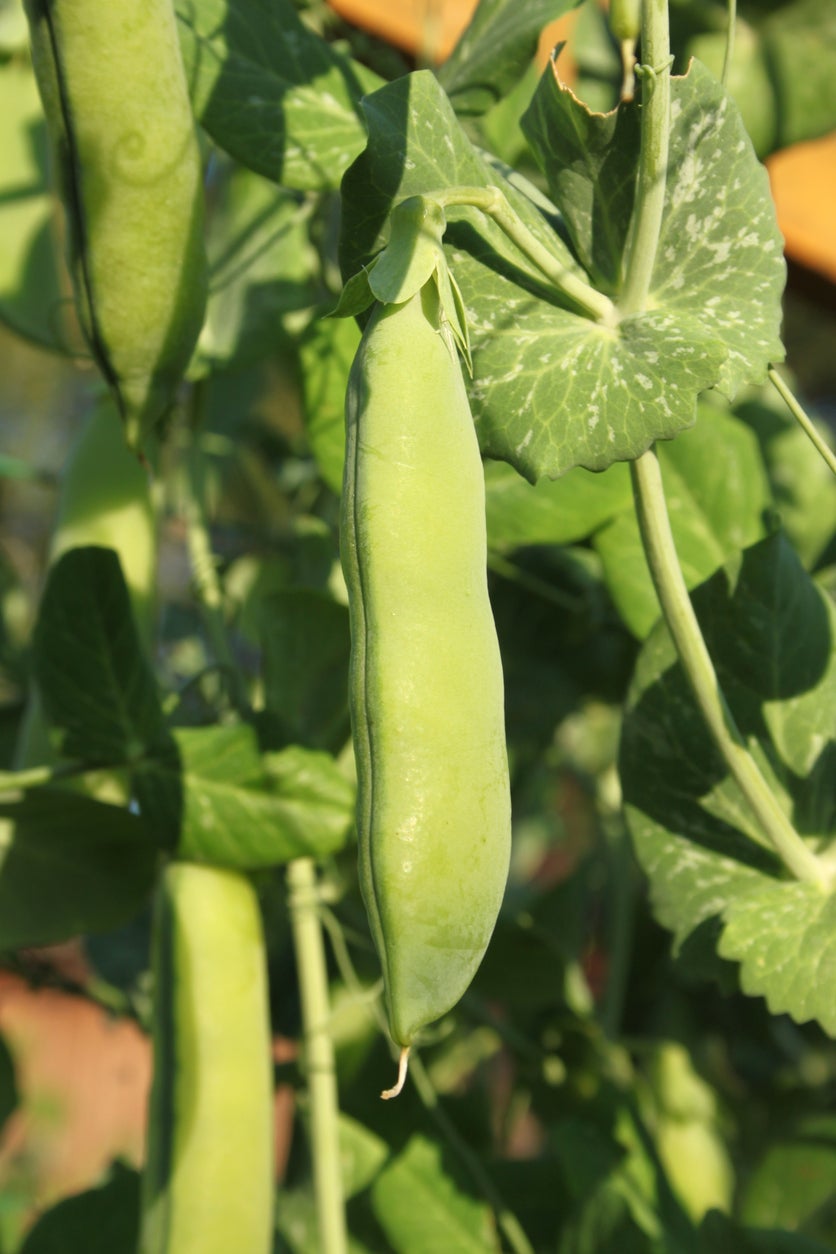Early Perfection Pea Info – How To Grow Dark Seeded Early Perfection Peas


Dark Seeded Early Perfection, also known as just Early Perfection, is a variety of pea that gardeners love for its flavor and for how easy the plant is to grow. As an early variety, you can grow these peas in the cooler days of early spring or in the crisp weather of fall, or both to get a double harvest.
Early Perfection Pea Information
For a pea, Early Perfection is a tough plant that is easy to grow. It resists drought and several diseases, including fusarium wilt. It’s also a prolific producer, even if you have poor soil. Fall is a great time to get started with Early Perfection, as these peas prefer temperatures below 70 degrees F. (21 C.). Early Perfection vines grow to about 30 inches (76 cm.) in length. You’ll get an abundance of 3 inch (8 cm.) pea pods that contain seven to ten peas. They are tender and sweet but also hold up well when canned or frozen.
Growing Early Perfection Peas
The Early Perfection pea plant is an easy one to grow. Based on the Perfection variety, this newer cultivar was developed to grow and produce twice a year, in spring and in the fall. It’s easy to grow because it tolerates some poor conditions, like low-nutrient soil and drought, and resists some diseases. Depending on the time of year and climate in which you’re starting Early Perfection, you can either begin them indoors and transplant outside or sow the seeds directly in your vegetable beds. Either way, the time to maturity will be about 66 days. Your pea plants will need a sunny spot with good draining soil and something to climb. A trellis, fence, or wall will work. Place transplants, or thin seedlings directly sown, so that they are about 4 inches (10 cm.) apart. Although Early Perfection pea plants are relatively tough, you’ll get the most out of them by providing the best conditions. Amend your soil with compost or fertilizer to make sure there are adequate nutrients and water regularly throughout the growing season. This pea will resist wilt but is susceptible to mosaic virus and mildew, so avoid planting them where you have previously grown other legumes. The diseases may survive in the soil and infect new legumes, like your Early Perfection peas. Leafhoppers may also be a problem, but look out for them and use water to spray them off the leaves.
Gardening tips, videos, info and more delivered right to your inbox!
Sign up for the Gardening Know How newsletter today and receive a free copy of our e-book "How to Grow Delicious Tomatoes".

Mary Ellen Ellis has been gardening for over 20 years. With degrees in Chemistry and Biology, Mary Ellen's specialties are flowers, native plants, and herbs.
-
 Looking For Plants To Give You The Soft And Fuzzies? Try These 5 Fuzzy Leaf Plant Options
Looking For Plants To Give You The Soft And Fuzzies? Try These 5 Fuzzy Leaf Plant OptionsLovers of texture, drama, silver foliage and tactile plants will adore these special sensory garden additions. These fuzzy leaf plant options will leave you all aglow
By Susan Albert
-
 Get Ready For A Summer Of Hummers! Grow These Full Sun Hummingbird Plants and Flowers
Get Ready For A Summer Of Hummers! Grow These Full Sun Hummingbird Plants and FlowersIf you’re lucky enough to enjoy a sunny backyard, make sure you are maxing out on your pollinator opportunities and grow these full sun hummingbird plants and flowers
By Tonya Barnett